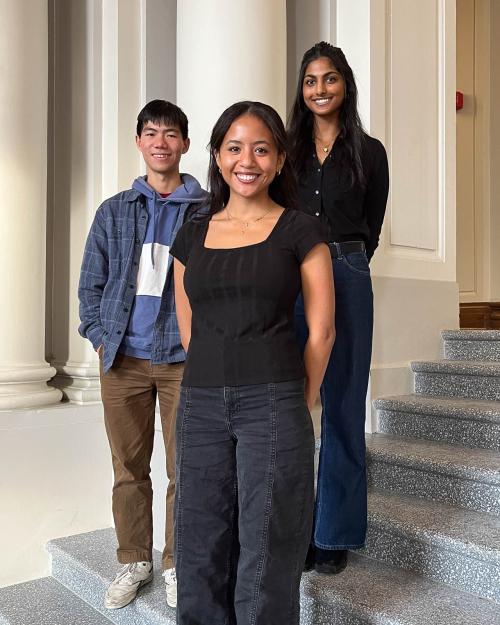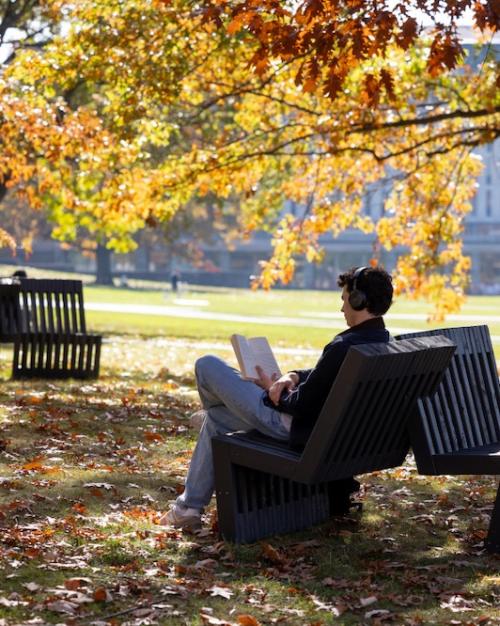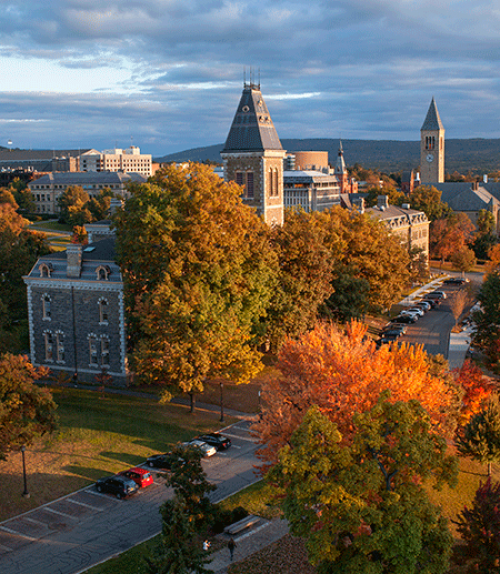Climate change, school segregation and online interaction are among the topics to be investigated by the Cornell Center for Social Sciences’ newest group of faculty fellows.
The center’s Faculty Fellows Program has named 11 faculty members from six colleges and schools as its 2020-21 cohort. The yearlong fellowships, including a semester in residence at the center, are designed to give promising early-career faculty members time and space to develop ambitious research projects.
Fellows, who are nominated by their deans, meet regularly to discuss their research and developments in the social sciences, and are encouraged to engage with colleagues and external collaborators.
“By the end of the fellowship year, these fellows will push forward critical knowledge on the greatest social scientific challenges of our time,” said Sahara Byrne, CCSS co-director and professor of communication in the College of Agriculture and Life Sciences. “We look forward to having them in residence with us at CCSS, where new collaborations are often born and major discoveries are made.”
“This cohort brings a range of exciting and ambitious social science research,” added Peter Enns, center co-director and associate professor of government in the College of Arts and Sciences.
The 2020-21 CCSS faculty fellows and their projects:
• Julieta Caunedo, assistant professor of economics (A&S), aims to develop the first direct measures of the rates of technological change by occupation. Her study, “Occupational Exposure to Capital-Embodied Technology,” will inform policymakers concerned about the potential for technology to replace human labor.
• Cristian Danescu-Niculescu-Mizil, assistant professor of information science in Computing and Information Science, studies the causes and consequences of online antisocial behavior. “Improving Online Discourse Through Conversational Modeling” will explore how computational models may improve interaction on online discussion platforms.
• Mara Yue Du, assistant professor of history (A&S), will develop her second book project, with the working title, “A Nation Defined by State: Where Sovereignty lies in China.” The book advances scholarship on how history and historical language has shaped sovereignty and state-building in China.
• Neil Lewis Jr., assistant professor of communication (CALS), will conduct experiments and analyze data for a project investigating “Gender Bias in Academic Hiring.” Lewis also will make progress on three other studies related to community engagement in research on environmental hazards, how learning environments influence student mindsets and performance, and how health information platforms influence health disparities.
• Sabrina Karim, assistant professor of government (A&S), will focus on a book project, “When Peace Makes States: How International Security Sector Assistance Shapes Post-Conflict State Building.” Using Liberia as a case study, the book will provide an analytical framework for assessing state-building efforts and understanding how best to rebuild the security sectors of weak, post-conflict states.
• Amy Krosch, assistant professor of psychology (A&S), will continue to study how threats exacerbate racial bias with her research project, “Seeing ‘Them’ as Less Human: Causes and Consequences of Whites’ Perceptual Dehumanization of Racial Minorities.” Krosch plans to produce a theoretical review, research articles and grant proposals.
• Peter Rich, assistant professor of policy analysis and management in the College of Human Ecology, will measure how many students are blocked from accessing high-performing schools by school district borders, and identify districts and cities where those gaps are most severe. “Dividing Lines: School District Boundaries and the Geography of Unequal Opportunity” will be the first study to quantify such spatial gaps in educational opportunity.
• Linda Shi, assistant professor of city and regional planning in the College of Architecture, Art and Planning, will research how climate change challenges governing institutions premised on property rights, property taxes and municipal boundaries. Her study, “Fiscal Vulnerability of Cities in the Global South to Climate Change,” will examine how existing institutions create incentives for coastal cities to grow unsustainably, and will explore alternative approaches.
• Kaitlin Woolley ’12, assistant professor of marketing in the Samuel Curtis Johnson Graduate School of Management, will investigate “How Intrinsic Motivation Shapes Resource Allocation.” The study will explore how enjoyment of an activity (intrinsic motivation) or interest in its outcome (extrinsic motivation) shapes how one spends limited time or money.
• Andrea Stevenson Won, assistant professor of communication (CALS), will study how social interaction could be incorporated into virtual reality therapies for patients undergoing painful or isolating medical treatments. “Social Interactions in Virtual Reality as an Intervention for Pain” will explore whether distraction from conversation with strangers or support from talking with loved ones represents a more promising avenue for improving VR interventions.
• John Zinda, assistant professor of development sociology (CALS), will study “Apples, Livelihoods, Landscapes: The Role of Perennial Crops in China’s Rural Transformations.” The research – a collaboration with a Cornell AgriTech geneticist and a Chinese scholar – will analyze different organizational structures for growing apples in China, their influence on landscapes and disease incidence in orchards, and their effects on community institutions and patterns of inequality.





